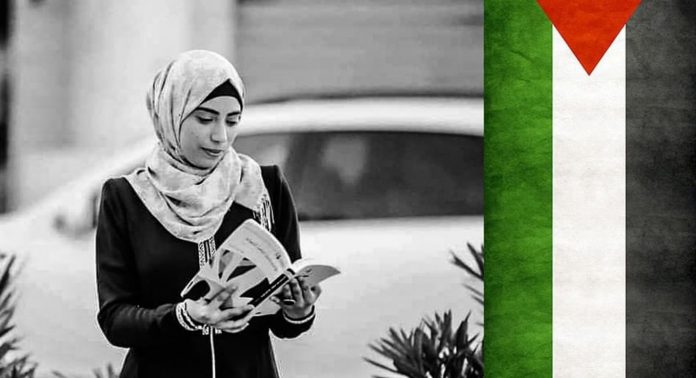Israeli military operations in Gaza have killed over 20,000 Palestinians, including 28 artists, intellectuals, and writers, according to the Palestinian Ministry of Culture. These souls lost to Israeli cruelty this year leave a vacuum in the global literary community.
Heba Abu Nada
On October 20, an Israeli attack in southern Gaza killed Heba Abu Nada, a respected Palestinian writer and author of Oxygen is Not for the Dead. She received the Sharjah Award for Arab Creativity in 2017 after earning a biochemistry bachelor’s degree from Islamic University, Gaza, and a clinical nutrition master’s from Al-Azhar University. I Grant You Refuge, one of her final poems, demonstrates her profound literary voice.
Report Alareer
A targeted Israeli bombing killed poet, literature professor, and activist Dr. Refaat Alareer, his brother, sister, and four nieces and nephews on December 6. Co-editor of the 2015 memoir Gaza Since 2007, Alareer has taught literature and creative writing at the Islamic University of Gaza without restraint. He strongly denounced Israeli and U.S. atrocities on X (previously Twitter) under his account, ‘Refaat in Gaza. His prophetic goodbye poem, If I Must Die, was translated into over 40 languages and became a symbol of peace protest after his premature death.
Inas Saqa
In late October, an Israeli bombing in Gaza City killed famous playwright, actor, and children’s theater instructor Inas al-Saqa and her three children, Sara, Leen, and Ibrahim. Saqa and her five children sought cover in an airstrike-damaged building. Farah and Ritta, her two children, survived but are gravely ill and in intensive care. Sara and The Homeland’s Sparrow star Saqa were cultural voices in Gaza.
NODIN Hajjaj
On December 2, an Israeli airstrike on the poet and author Nour al-Din Hajjaj’s Al-Shujaiyya residence resulted in his death. Hajjaj, known for The Gray Ones (2022) and Wings That Do Not Fly (2021), participated in Cultural Passion, the Cordoba Association, and the Days of Theater Foundation. He emphasized love for life despite Gaza’s restrictions in his final message, emphasizing his dreams and compassion. Hajjaj wanted his words to transcend borders, not only statistics.
